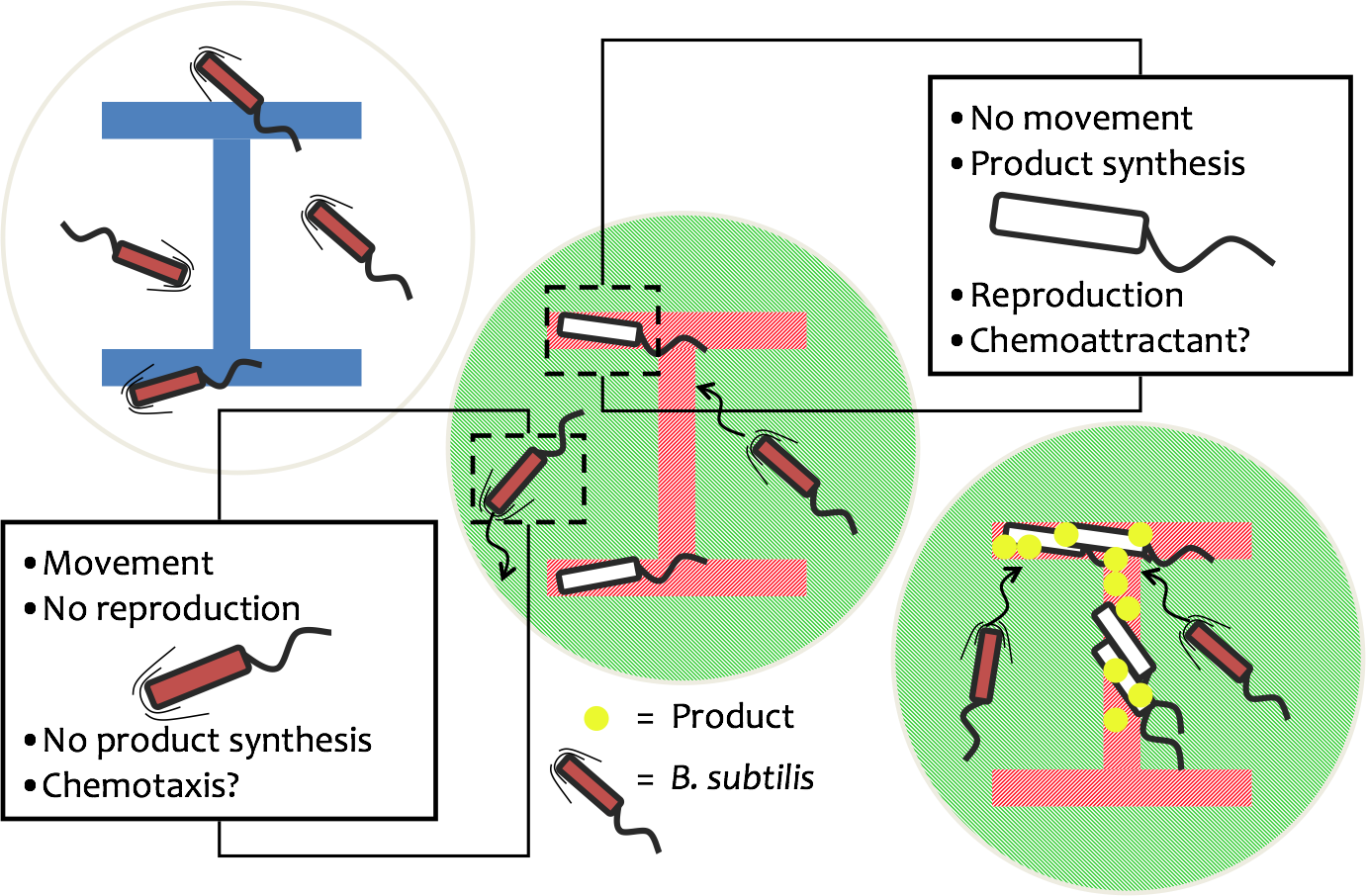Team:Imperial College
From 2008.igem.org
(Difference between revisions)
m |
m |
||
| Line 5: | Line 5: | ||
<br> | <br> | ||
{{Imperial/Box1|<html><center><img width="350px" src="http://i59.photobucket.com/albums/g305/Timpski/Logo1.png"></center></html> | {{Imperial/Box1|<html><center><img width="350px" src="http://i59.photobucket.com/albums/g305/Timpski/Logo1.png"></center></html> | ||
| + | Biofabricator Subtilis | ||
|For the 2008 iGEM competition, the Imperial College Team aims to develop a genetically-engineered Biofabricator, using the Gram-positive bacterium Bacillus subtilis as our chassis. Our Biofabricator aims to produce self-assembling biomaterials in specified 3D shapes, using light as the trigger. | |For the 2008 iGEM competition, the Imperial College Team aims to develop a genetically-engineered Biofabricator, using the Gram-positive bacterium Bacillus subtilis as our chassis. Our Biofabricator aims to produce self-assembling biomaterials in specified 3D shapes, using light as the trigger. | ||
| - | + | *First by utilising an endogenous light-sensing mechanism, the bacteria is captured in the desired location using 3D holography. | |
| - | + | *Next bacterial locomotion is suspended in the region of interest using a recently-discovered clutch mechanism. This involves disengaging the flagellum from the motor protein. | |
| - | [[Image:Imperial_2008_Bioprinter_Cartoon.png |center|600px| Overview of our planned system]] | + | *Finally, when our bacteria are stationary in the correct location, the biomaterial production is triggered. These biomaterials can self-assemble to form a 3D bio-scaffold. |
| - | [[Image:Imperial_2008_Basic_Circuit.png |center|Basic Circuit Diagram]] | + | |
| - | + | ||
| + | [[Image:Imperial_2008_Bioprinter_Cartoon.png | center | 600px | Overview of our planned system]] | ||
| + | [[Image:Imperial_2008_Basic_Circuit.png | center | Basic Circuit Diagram]] | ||
| + | |||
| + | |||
| + | Applications of our Biofabricator range from regenerative tissue engineering to Bio-Couture. | ||
| + | |||
| + | |||
Please continue on to our project pages - you may want to start with our [[Team:Imperial_College/Project/| '''>>> Project Specifications >>>''']]}} | Please continue on to our project pages - you may want to start with our [[Team:Imperial_College/Project/| '''>>> Project Specifications >>>''']]}} | ||
| - | <hr> | + | |
| + | <hr><br> | ||
{{Imperial/Box1|| | {{Imperial/Box1|| | ||
The Imperial College Team 2008 has received sponsorship from a number of generous companies. We are grateful for their kind support. | The Imperial College Team 2008 has received sponsorship from a number of generous companies. We are grateful for their kind support. | ||
Revision as of 16:12, 13 October 2008
|
|||||||||||||||
 "
"







